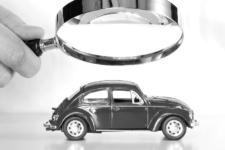Your vehicle was stolen and then found a few weeks later by the police without any trace of break-in but crashed. Situation that becomes almost banal when it comes to car theft.
The insurer has been slow to compensate you while waiting precisely for your vehicle to be found. The report filed by the insurer’s expert mentions the absence of traces of break-in and your insurer notifies you of the refusal of compensation by opposing you a guarantee condition namely : absence of traces of mechanical or electronic break-in. What to do ?
Know that today there are legal means (arguments) to challenge this position. Courts are increasingly in favour of policyholders facing this type of unwarranted refusal by insurers.
The insurer must compensate you even in the absence of traces of infringement in view of the latest jurisprudence of the courts
In accordance with Consumer Law, abusive clauses are clauses that create a significant imbalance of rights between the trader and the consumer. These clauses can be declared null and void by case law, i.e., more concretely, inapplicable to the insured.
If your insurance contract contains a clause that can be described as abusive, in the event of a lawsuit, the magistrate may cancel it, that is, declare it unenforceable.
Some courts have admitted that theft is a legal fact with free evidence. In support of this principle the courts are beginning to judge more and more often that the insurer cannot impose specific methods of proof (such as, for example, the demonstration of mechanical or electronic burglary) to refuse insurance coverage (Paris Court of Appeal, June 13, 2017).
Such a clause limits the freedom of proof of the insured (fundamental principle defended by the court of cassation) and, therefore, must be deemed abusive, i.e., more concretely, unwritten / inapplicable to the insured.
In other words, if the insurance policy guarantees theft, the insurer cannot impose on the insured additional evidence (break-in) to refuse to guarantee, as soon as the theft is proved and no fraud of the insured is demonstrated by the insurer’s expert.
In summary, a clause that requires the traces of break-in on the stolen car can be overturned by the judge in case of litigation.
So do not bend to the whims of your insurer who denies you compensation and try to defend yourself by arguing legally.
Courts are increasingly supportive of insured victims of vehicle theft without signs of break-in
In the event of a dispute with the insurer, the judges believe that insurers do not take into account in their insurance policies the technical reality of modern methods used by thieves.
For example, courts increasingly consider that modern vehicle theft techniques render “burglary-free” clauses obsolete, so that clauses that impose an obligation on the insured to prove a break-in are abusive and therefore void/unenforceable.
The judges recognized through some important decisions that insurers know or must know that today a vehicle can technically be stolen “remotely”, by hacking the electronic codes of the keys, and therefore all logically without leaving the slightest trace of break-in.
The experts of the insurance companies know this very well but, mandated (and therefore paid) by the companies themselves, they will try to “bring back” the circumstances of the theft to the non-coverage clause without obviously worrying about the interest of the insured.
You have an interest in having your own expert represent you at this expertise to counter the conclusions of the company expert.
What defense against the denial of compensation ?
The courts use the technique of beams of clues to deduce that the insured has not made false statements regarding the theft of his vehicle and must obtain compensation despite the absence of traces of break-in.
It is therefore necessary for you to argue, for example, the argument that you were no longer in possession of the vehicle keys at the time the police found it (quite common situation) because you returned them to the insurer’s expert or to the insurer itself immediately after the theft.
Thus, for example, it has been ruled by the courts that the insured demonstrates the reality of the claim when his vehicle was discovered abandoned on the public road and not in the place where it was declared parked. The judges ordered the insurer to guarantee the claim even in the absence of traces of break-in.
Moving the vehicle during the night, while the insured was still in possession of the Keys, also corroborates the establishment of proof of the claim, which is logical, and it demonstrates that the insured did not make false statements. Even in the absence of signs of break-in, the insurer must guarantee the claim.
If the displacement of the vehicle (and therefore the theft) was found by the police while the insurer’s expert was in possession of the vehicle keys logically excludes that the insured himself orchestrated the loss (since he had returned the keys to the insurer’s expert). In this case, even in the absence of traces of break-in, the insurer must guarantee the theft.
On a practical level, if you are the victim of such an insurance refusal when there is evidence that the car has been stolen remotely by key hacking, consult an insurance lawyer so that the latter will notify your insurer of the legal arguments in support.
Practice shows that unfortunately, in the face of insurers ‘ abuse of vehicle theft, the only effective means remains the use of the lawyer, and this, as quickly as possible.
In view of the latest jurisprudence of the courts, your claim against the insurer has a very good chance of success.







